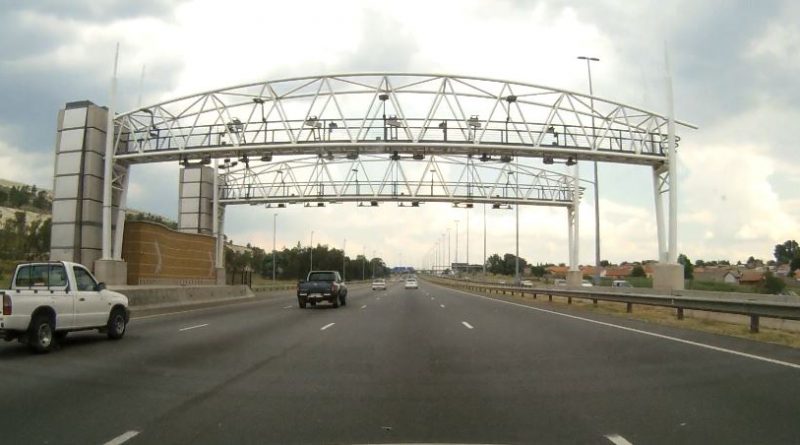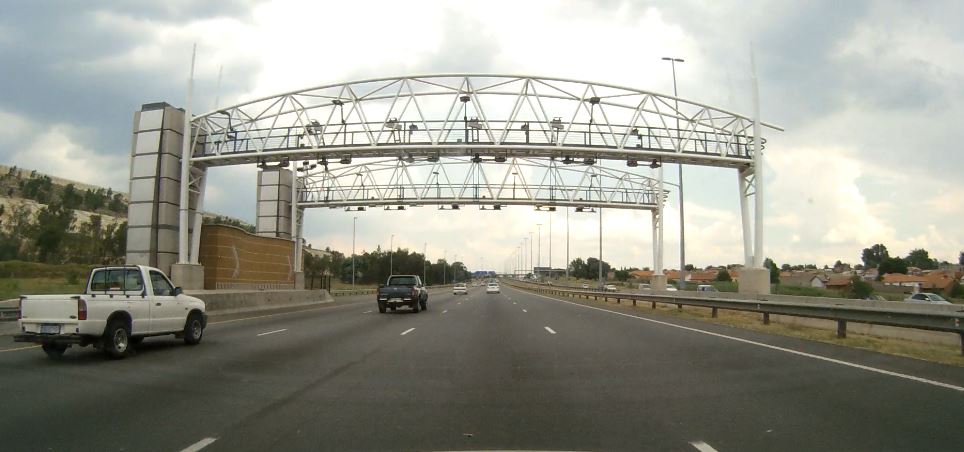Justice Project responds after CEO of a private company threatens “on-road enforcement” over e-tolls
JOHANNESBURG – Exactly two weeks after the Department of Transport published a Government Gazette extending “discounts” on e-tolls to 30 June, the CEO of Electronic Toll Collection (ETC), the firm that runs the South African National Roads Agency’s (SANRAL) Gauteng e-toll system, Jamie Surkont has allegedly levelled threats of “on-road enforcement” over e-tolls, calling it a “precursor to prosecution”.
This also comes just days after SANRAL went to great lengths to deny claims that motorists were being stopped by Metro Police and taken to task for not having e-tags.
If this “on-road enforcement” is going to take place and target those with false, cloned, obscured, altered or missing number plates, that is one thing and it’s fully within the law. It would also be fully within the law to issue fines for missing licence discs and arrest persons who have a fraudulent licence disc, fraudulent number plates or no number plates provided that where there are no number plates – the motor vehicle is not a motorcycle. The AARTO Act contains charges for:
- Motor vehicles other than motorcycles and trailers that only display 1 number plate – R500 fine (charge code 1210);
- Motor vehicles other than motorcycles and trailers that have no number plates – Arrest and prosecution in court (charge code 1211);
- Motorcycles that have no number plate – R500 fine (charge code 1231); and
- Trailers that have no number plate – R500 fine (charge code 1232).
- Failing to affix a licence disc carries a R500 fine; and
- Affixing a fraudulent licence disc is a criminal offence where arrest and prosecution in court will follow.
If however it is going to be used to stop those who have not paid e-tolls and “escort them to a customer service centre to pay” as has previously been mooted, then this will be fully illegal and tantamount to kidnapping and extortion.
Traffic Officers may indeed serve a summons in terms of Section 54 of the Criminal Procedure Act on the person driving the vehicle but they will have to make certain that:
- That person is the registered owner cited in a “rollup” summons; and
- The court date cited on the summons is no less than 14 days away (Sundays and public holidays excluded).
They MAY NOT:
- Issue and serve such summons on the driver of the vehicle who is not the specific person cited in that summons;
- Detain the driver until such time as the person cited in the summons comes to be served the summons;
- Issue a summons in terms of Section 56 of the Criminal Procedure Act on the driver citing driving on the freeway on the day they stop them since they have seven days to pay; or
- Arrest anyone without a lawful Warrant of Arrest.
Stopping motor vehicles that have outstanding e-tolls against the licence number will be a hit or miss situation since a large proportion of vehicles are driven by people other than the registered owner.
Whilst it may have become a tradition for private companies contracting to State institutions to threaten criminal prosecution – it is not their place to do so and Surkont calling this a “precursor to prosecution” is utter rubbish and shows his lack of understanding of the Criminal Procedure Act. ETC should stick to running the e-tolls system and sending out “unauthorised test emails” containing threats to motorists so Vusi Mona and company have something to deny and leave the Criminal Procedure Act and traffic policing to those who know how it works.
Bemoaning the eNaTIS registry as being “inaccurate” when legislative amendments were drafted and put out for public comment on 8 June 2012 (Government Gazette 35413 – Notice 458 of 2012) wherein regulation 32A was to be inserted into the National Road Traffic Regulations, requiring vehicle owners to provide proof of residence with licensing transactions is somewhat disingenuous.
The Department of Transport has had almost two years to proclaim this provision and to date, it has not done so. Instead, it forged ahead with e-tolling and the legislation surrounding it, knowing full well that eNaTIS is a mess. Perhaps it did so because it either thought everyone would buy into e-tolling and get tagged, or perhaps it thought that threats of stopping people on freeways and escorting them to “customer service centres to pay” would scare people sufficiently. Whatever their thoughts process was, the fact remains that this amendment could have already been in force for more than 18 months now and yet, they have chosen bullying over a practical solution.
This says a lot for the ethos of both, the Department of Transport and SANRAL. The fact remains however that if these “on-road enforcement” exercises deviate just a little from the provisions of the Criminal Procedure Act, the Gauteng Department of Community Safety, The Gauteng Provincial Government, SANRAL, the Department of Transport and ETC are all going to be sued blind by motorists who are abused by them.
It must be noted that JPSA and others warned SANRAL that the eNaTIS registry is a mess a long, long time before e-tolling commenced and Nazir Alli and others chose to poo-poo us in no uncertain terms. Just like when we warned them about the eNaTIS mess at that time, we are warning them about the massive civil claims they risk incurring if they proceed with their poorly thought out “on-road enforcement” exercises. We have been proven right about our assertions on the eNaTIS issue and we will be proven right on the “on-road enforcement” exercises if SANRAL and others choose to again ignore our warnings. Trust us when we say that we will do everything we can to ensure that they do get sued blind if the deviate from the law.
Members of the public are warned that paying an admission of guilt fine on a summons issued in terms of Section 54 or Section 56 of the Criminal Procedure Act is equivalent to pleading or being found guilty of the offence in court and will incur a criminal record for them. JPSA issued an advisory in this regard on 28 March 2014 because people are under the false impression that these are mere traffic fines and paying them is both, the right thing to do and a time-saving option available to them. At best, this is a very foolish thing to do if anyone intends applying for a travel visa or a job.
Clearly, there are people who are of the opinion that it is far more important to enforce e-tolls legislation than it is to enforce other road traffic laws which, when disobeyed, lead to the death or serious injury of hundreds of thousands of people on an annual basis in South Africa. According to the RTMC, approximately 14,000 are killed and according to the Road Accident Fund, more than ten times that many are injured on our roads annually.
It is clear that another “cash cow” other than speeding has been identified for so-called traffic enforcement authorities in South Africa and those injured and/or killed on our roads are nothing more than “collateral damage” in the pursuit of money from motorists.
Howard Dembovsky
National Chairman – Justice Project South Africa (NPC)





